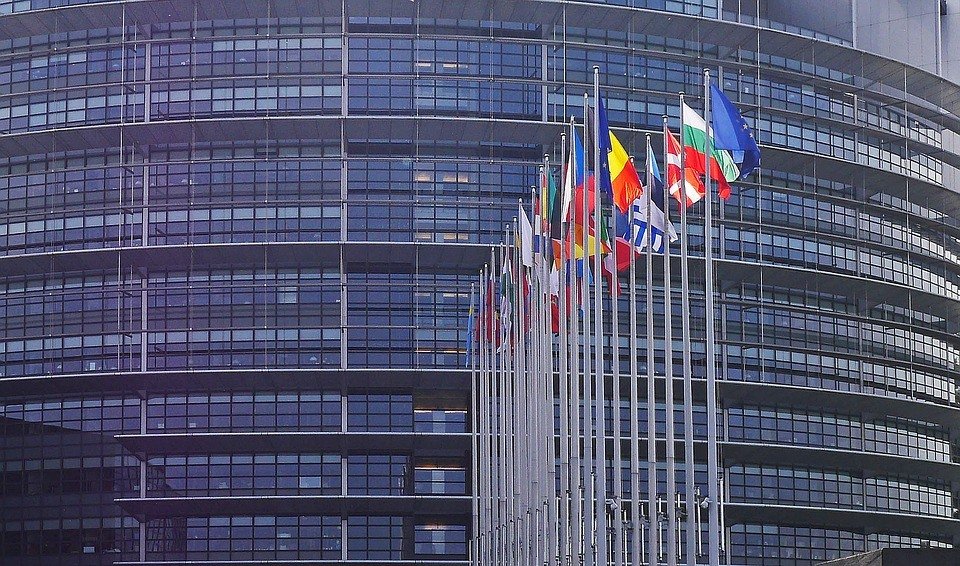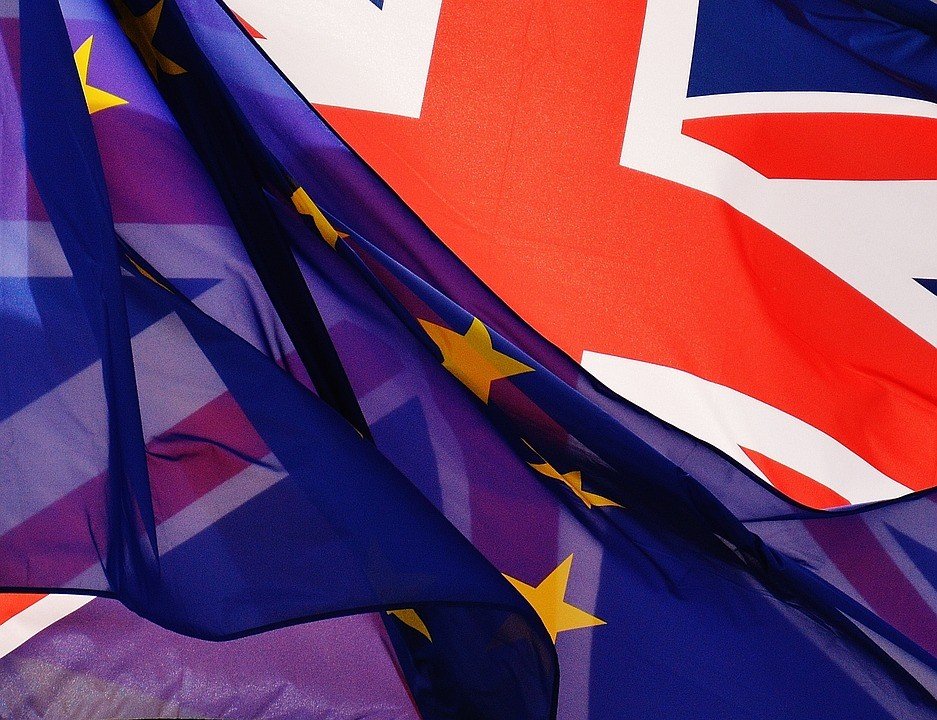Markets
How bad is BREXIT for UK and EU?
Government officials across the European Union, are all making a concerted effort in figuring out, what they can do to attract businesses, to move from London.

In light of recent events regarding Brexit, how will the UK leaving the EU affect European companies and businesses?
For some people in Britain as well as parts of the European Union, the general feeling towards the EU project can be possibly be summed up, more or less as that, the EU leaders continue to remain disconnected with the reality and fail to grasp the reality on the ground. Some do argue that, by coming across as being acting elitist, the policy makers are destroying the competitiveness of European business. The evidence is that, across industries, the cost of compliance for European companies has increased significantly year-on-year. And instead of using BREXIT as an opportunity to fix a very inefficient system, the leaders keep talking in terms of rhetoric.
I firmly believe that no one in London wants EU to fail, and it shouldn’t because it has delivered peace across Europe. But the European Union as an idea is full of flaws, and just ask those, who paid and continue to pay the human price for being a European. My own assessment is that BREXIT isn’t good for the UK or the EU, and that’s the reality, but it’s also an opportunity. The European Union badly needs reform and it’s not that Europeans have started falling in love with Brussels post BREXIT.
As I see it, Britain is getting out of the European Union and not the continent of Europe. So let’s have that perspective. I don’t see the European Union working out in its current shape, and the four principles that EU leaders keep talking about, are completely unsustainable together because they create a serious misallocation of resources. There was no socioeconomic impact assessment done on the expansion of European Union, we all know what happens to a Company that goes through an expansion drive, without a well thought out strategy. So why not fix the flaws, and then sell the product wisely to the public, and let’s see if the potential customers buy into it? No point lecturing people, if they reject your product or fail to understand what you are selling, and providing a good customer service is key to making a product work.
The European Union as a product will need to evolve, and it will be good for European politicians to understand that, the language of business, as well as science, still remains English, and that’s not going to change in the foreseeable future. Also, London will continue to remain an attractive jurisdiction, and the world of finance will continue to be dominated by English. The opportunities are still out there, and I sincerely hope that politicians across Europe including the U.K. will come together, to make good of those opportunities, and maximize it for their shareholders, in other words, the common citizens.
Also to some extent, people in Britain fail to understand that, in continental Europe, there is a genuine love affair with the idea of European Union, and that is, for a number of reasons, which I won’t go into. So yes, like any love affair, the journey will be driven by emotion. And it’s not that, the average people don’t understand that, there are serious design flaws with the idea of European Union, but when you are in love, you are in love. And, I think, Britain will do well being mindful of this fact, while negotiating its exit from the EU. Also, on the British side, there are people who are extremely attached to the idea of Great Britain and its glory. So there are emotional attachments on both sides, and yes I fully appreciate that, the will of the people has to be enforced, and it should be, or what’s the point of a democratic system. But when we are talking about a permanent change, the prudent thing to do will be to keep the emotions aside and have a boringly dispassionate approach towards figuring out a way forward that works for all sides. No point being nasty, in the end, we will have to learn, to live with each other. Europe needs Britain and Britain needs Europe, it’s just a fact, and we shouldn’t be confused about it.

The European Union as a product will need to evolve, and it will be good for European politicians to understand that, the language of business, as well as science, still remains English, and that’s not going to change in the foreseeable future. (Source)
By overplaying their hands, both sides is taking the risk of doing permanent damage. Love affairs can get nasty, and quite frankly Britain’s relationship with the EU was never based on love. But British diplomats and the politicians do need to factor in the reality that, whether it’s Mr. Juncker or Mr. Tusk, there is a genuine love affair with the idea of European Union. And we need to learn to respect that love, instead of criticizing others for being in love. What we are looking at today is, potentially a lose – lose outcome for all sides, and it’s hard to practically see otherwise. And that’s why it is important that leaders in the European Union, instead of punishing Britain for not being in Love, try to understand that, sometimes relationships don’t work, and also sometimes people do patch things up. Also, why not make some changes, to accommodate each other, after all, that’s what a good relationship is all about, or am I missing something? There is an opportunity, so why not make the most of it?
Government officials across the European Union, are all making a concerted effort in figuring out, what they can do to attract businesses, to move from London. And their pitch is not bad at all, but as a business, you have to ask yourself, do you buy into a series of promise or do you wait, to see how much of what is being promised will get delivered on the ground. I am afraid, the reality is, it will be a big struggle for a single European city to replace London. Because London built itself over hundreds of years, into what it has become today, and quite frankly, it’s a daunting task for one European city to replace London entirely. So yes, bits and pieces of what London is offering can be moved to other parts of the EU, but that won’t be enough for a business really. Also, a major issue is language, contrary to what politicians in the EU might say, the language of business is English, and there is no way, you can force the world to change to French now. And I am beginning to also sense that, there is a genuine fear among some bureaucrats in Brussels that, if Britain makes a success of its exit from the EU then, others will most likely follow.
So with all that, here are some ideas worth looking into, while UK is on the BREXIT Road.
-
lower the corporate tax rate to 18%
-
provide 2- years tax exemptions on profit of startups with 5 employees
-
lower the personal tax rate for people earning over £ 350,000 to 36%
-
lower the personal tax rate for people earning between £ 50,000 to £ 150,000 to 30%
-
keep the basic rate for people earning between £ 12,000 to £ 49,000 around 20%
-
people earning £ 45,000 and over will pay £ 25 flat access fee for GP and A&E visits and £ 35 access fee could be charged to non-residents.
-
a stamp duty surcharge of 5.5% could be levied on non-resident buyers of residential properties in the U.K. This surcharge could be used to partially pay for building more social housing.
-
working with the depart of trade & industry create a business mentorship program, where business schools from across U.K. could partner with SMEs, to provide them free of charge essential advisory support on how to grow and better manage the business. Business schools with the support of the department of trade & Industry could mentor existing SMEs, and help find ways to grow sustainably.
-
set up a £ 5 billion business support fund, in partnership with private sector, to help fund start-up investments requiring £ 30,000 to £ 750,000 in seed funding. The trust acting on behalf of the government could take 25 % of the exit value, in order to generate profit. This fund could be funded by a combination of a surcharge of 1.5% on Tobacco and from the profit generated by exiting the investments in the startups as well as allowing councils across the UK to support and subsidize startups.
-
expand the capacity at both London Gatwick and Heathrow, to ease the congestion
-
dial down on the cost of non-critical regulatory compliance on businesses and the cost of compliance on businesses
-
work out a deal with the EU to access the single market by paying an annual membership fee. UK runs a trade deficit with the EU, and it is in the interest of European Union, to not lose a market that imports around £ 290 billion in good and services from the EU annually. A short-term disruption will result in very sizeable job losses and also closings of businesses across the EU. Many SMEs that are reliant on selling to their customers in the U.K. will have serious losses, so it’s in the interest of EU, to work out a deal on trade.
-
reposition London as the offshore hub for YUAN, Indian Rupees and other important emerging currencies by supporting their capital market transactions through London, a common regulatory framework could be worked out in partnership with regulators from key emerging countries, to enable companies from these key emerging markets, to access capital as well as other vital resources through London.
-
make it easier for people with high skills and high net worth to come and live in the UK
-
develop key cities across U.K. for sectors that will play a dominant role in the future, for example, make parts of U.K. the hub for AI related technological developments as well as space among others
-
pitch Oxford, Cambridge and Edinburgh as technology centres of the world
-
enable partnership between schools and businesses, to help with skills development
-
to help build the soft power of London, help create legislation that will enable non-governmental organisations from across the world to house their outfits in London.
-
help UK-based premier Universities and colleges to attract the brightest minds from across the world.
—
DISCLAIMER: This article expresses my own ideas and opinions. Any information I have shared are from sources that I believe to be reliable and accurate. I did not receive any financial compensation in writing this post, nor do I own any shares in any company I’ve mentioned. I encourage any reader to do their own diligent research first before making any investment decisions.

-

 Biotech1 week ago
Biotech1 week agoWhy Bioceres Shares Slide Into Penny Stock Territory
-

 Africa5 days ago
Africa5 days agoAgadir Allocates Budget Surplus to Urban Development and Municipal Projects
-

 Cannabis2 weeks ago
Cannabis2 weeks agoKONOPEX Expo 2026: Celebrating Europe’s New Era of Legal Cannabis
-

 Biotech2 days ago
Biotech2 days agoVolatile Outlook for Enlivex Therapeutics as Investors Await Clinical Catalysts

























You must be logged in to post a comment Login